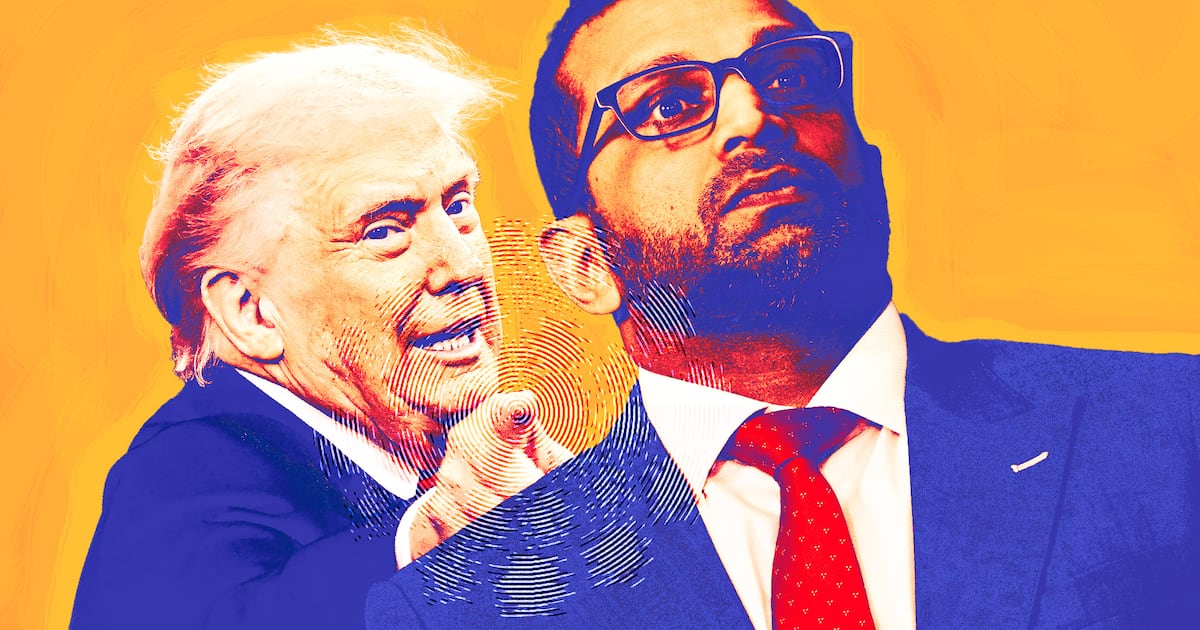D.C. businessman Jeffrey E. Thompson is under federal and local investigation for breaking a whole host of campaign finance laws, including funneling more than $2 million to various candidates over a six year period through third parties and off-the-record activities. In particular, Thompson gave large sums of money to Vincent Gray’s successful campaign to unseat Adrian Fenty in the 2010 D.C. mayoral election.

Gray has long denied any involvement with Thompson, refuting any knowledge of the businessman’s “shadow campaign” and maintaining his innocence. “The mayor’s position is that it is absolutely not true,” said Robert Bennett, Gray’s lawyer, to the Associated Press. “That has not changed one bit.” Likewise, the mayor himself told the Washington Post, “These are lies.”But according to federal officials, this is bunk. At a court hearing on Monday, prosecutors alleged that Gray knew Thompson’s activities were off-the-book, and had to be kept secret. What’s more, to keep the activities secret, Gray would refer to Thompson as “Uncle Earl”—a codename, of sorts. Prosecutors also allege that figures in the Gray camp went to Thompson for help, asking him to “accelerate his fundraising” with a $400,000 get-out-the-vote operation.
After Gray won the election, according to the report, Thompson appealed to the new mayor through an associate to “expedite” a settlement involving his health care firm.
It almost goes without saying that a guilty verdict for Thompson means a huge blow to Gray, who is running a tough reelection race against several opponents, including Fenty’s city council successor in Ward 4. Gray is strong enough to win, but not so strong that he isn’t vulnerable to a major disruption, like the investigation into his political activities.
As a D.C. resident, I don’t care that Gray funded a shadow campaign and violated campaign finance laws. It would be different if Gray’s activities were in service of his personal pocketbook—if he were funneling funds to a bank account, and not his campaign’s coffers. (Though, it is true that Thompson gave $10,000 to a "close family member" of Gray's to settle debts with campaign workers, as well as $40,000 to a "close personal friend" of the mayor's.) But this—illegal cash to fund a campaign—seems more benign; the “honest graft” of George Washington Plunkitt.
For those unfamiliar with the figure or the term, Plunkitt was a key figure in New York’s Tammany Hall political machine who used his influence to, for instance, hold multiple public offices. As Jonathan Rauch explains forThe Atlantic, it was his custom to hold forth on politics, and his reflections were published in 1905. Among them is a distinction between “honest graft” and “dishonest graft.” Here’s Rauch, quoting and commenting on Plunkitt:
“There’s the biggest kind of a difference between political looters and politicians who make a fortune out of politics by keepin’ their eyes wide open,” Plunkitt said. “The looter goes in for himself alone without considerin’ his organization or his city. The politician looks after his own interests, the organization’s interests, and the city’s interests all at the same time.” Dirty graft is parasitic, mere larceny, whereas honest graft helps knit together a patronage network that ensures leaders can lead and followers will follow.For most people, this is irrelevant; politics should be clean, regardless of the benefits of honest graft. But I’m inclined to cut Gray a little slack. If Gray took money from Thompson, then it was to win an election and lead a city. And, as mayor of D.C., Gray has had a solid tenure, with lower crime and greater growth. Gray may be corrupt, but if it’s helped him build coalitions and utilize power then—looking at the full picture of municipal politics—that might be a good thing.
Updated for accuracy and corrected: Fenty did not receive funds from Thompson.






